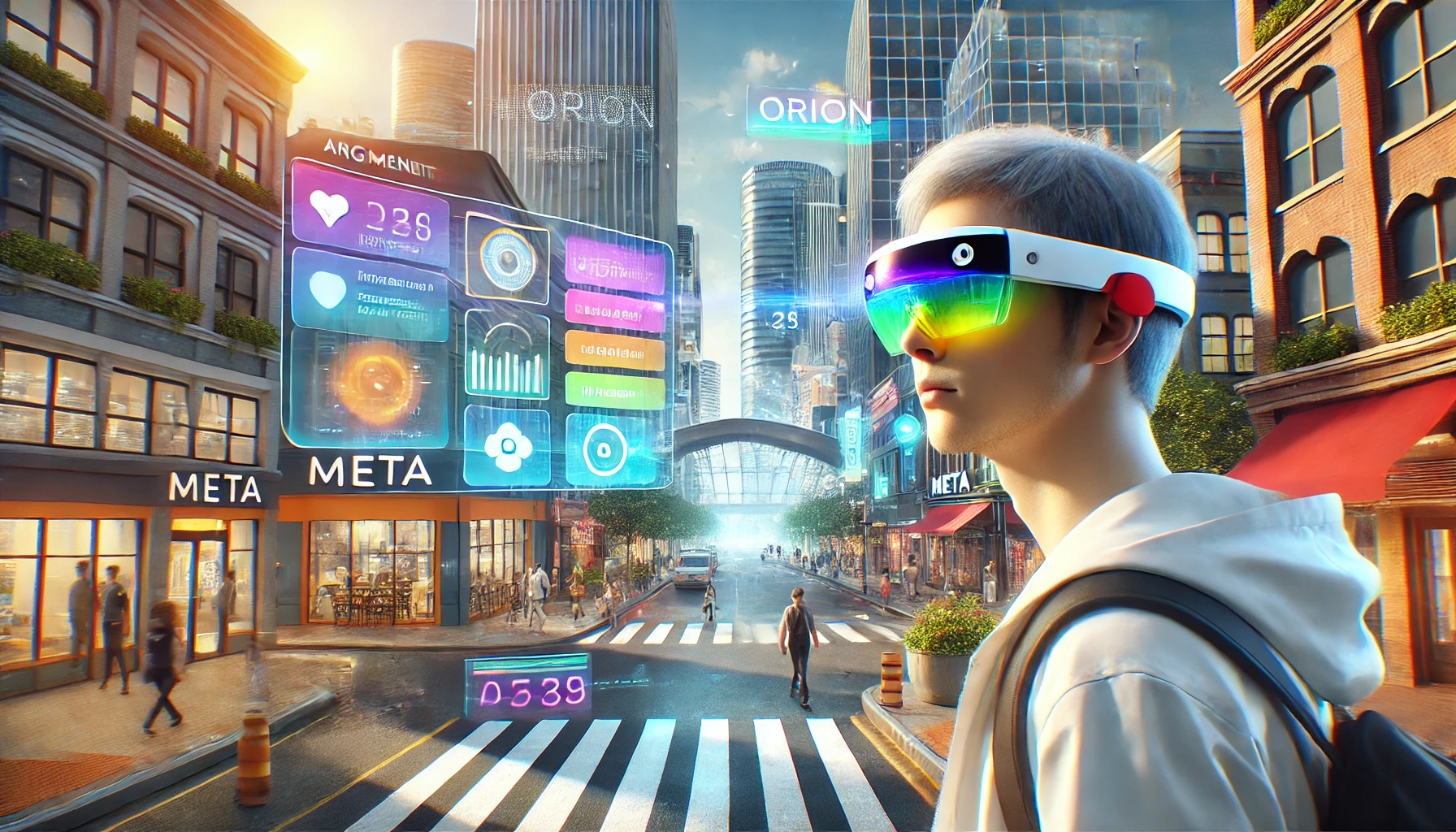
Meta recently introduced Orion, its first true augmented reality (AR) glasses, setting the stage for the future of immersive technology. Unlike previous AR devices, Orion offers a fully integrated, hands-free experience, blending digital information with real-world surroundings seamlessly. These glasses enable users to interact with both physical and digital worlds simultaneously through gesture and voice controls.
Key Features of Orion
1. Advanced AR Displays
Orion features full-color, high-resolution AR displays, allowing users to see virtual objects with remarkable clarity. Whether for navigation, gaming, or real-time collaboration, the glasses provide lifelike digital overlays onto the real world.
2. Hands-Free Controls
Gesture and voice recognition are pivotal in making Orion user-friendly. The glasses track user hand movements and respond to voice commands, enabling a more natural way to interact with digital elements.
3. Real-Time Notifications and Interactions
The glasses offer real-time notifications like calls, messages, and social media updates, eliminating the need to check a smartphone. Imagine walking down the street, seeing turn-by-turn directions, or getting live social media notifications without looking down at a device.
4. AI-Powered Personal Assistant
Orion is equipped with Meta’s AI assistant that helps with tasks like scheduling, responding to messages, or providing information on-the-go, elevating productivity and user experience.
Applications of Orion
1. Entertainment and Gaming
With Orion’s AR capabilities, users can play interactive games that blend physical spaces with virtual worlds, offering a unique gaming experience. Virtual objects will seamlessly overlay onto real surroundings, creating immersive gameplay.
2. Workplace Collaboration
Orion will redefine remote collaboration. Teams can share digital environments, attend virtual meetings, and visualize 3D models in real time. These glasses are especially beneficial in industries like architecture, engineering, and design.
3. Navigation and Everyday Use
For everyday users, Orion can enhance tasks like real-time navigation by displaying directions or landmarks in the user’s field of view. It can also serve as a productivity tool, offering reminders, meeting alerts, and notifications while you remain hands-free.
4. Healthcare and Education
Healthcare professionals can use Orion for real-time data overlays during surgeries, or training simulations for students. In education, the glasses can make lessons more interactive and engaging by blending real-world experiences with educational content.
Privacy and Data Protection
Meta has emphasized privacy and data protection with Orion, given its ability to capture sensory information through cameras and microphones. Users will have control over how their data is used and stored, aligning with Meta’s broader commitment to transparency and privacy in AR technologies.
Future Outlook
The introduction of Meta’s Orion marks a pivotal moment in augmented reality technology, offering a glimpse into the future of wearable AR devices. As Meta continues to refine its AR ecosystem, these glasses will be central to the company’s vision of a more connected, immersive world—where digital and physical realities converge seamlessly.
Conclusion
Meta’s Orion AR glasses represent a leap forward in augmented reality technology, with significant implications for gaming, collaboration, and daily productivity. With its powerful features like AI integration, gesture controls, and seamless interaction with the metaverse, Orion is set to redefine how we interact with our world.
For further details on Meta’s Orion AR glasses, visit their official announcement here(Facebook).






